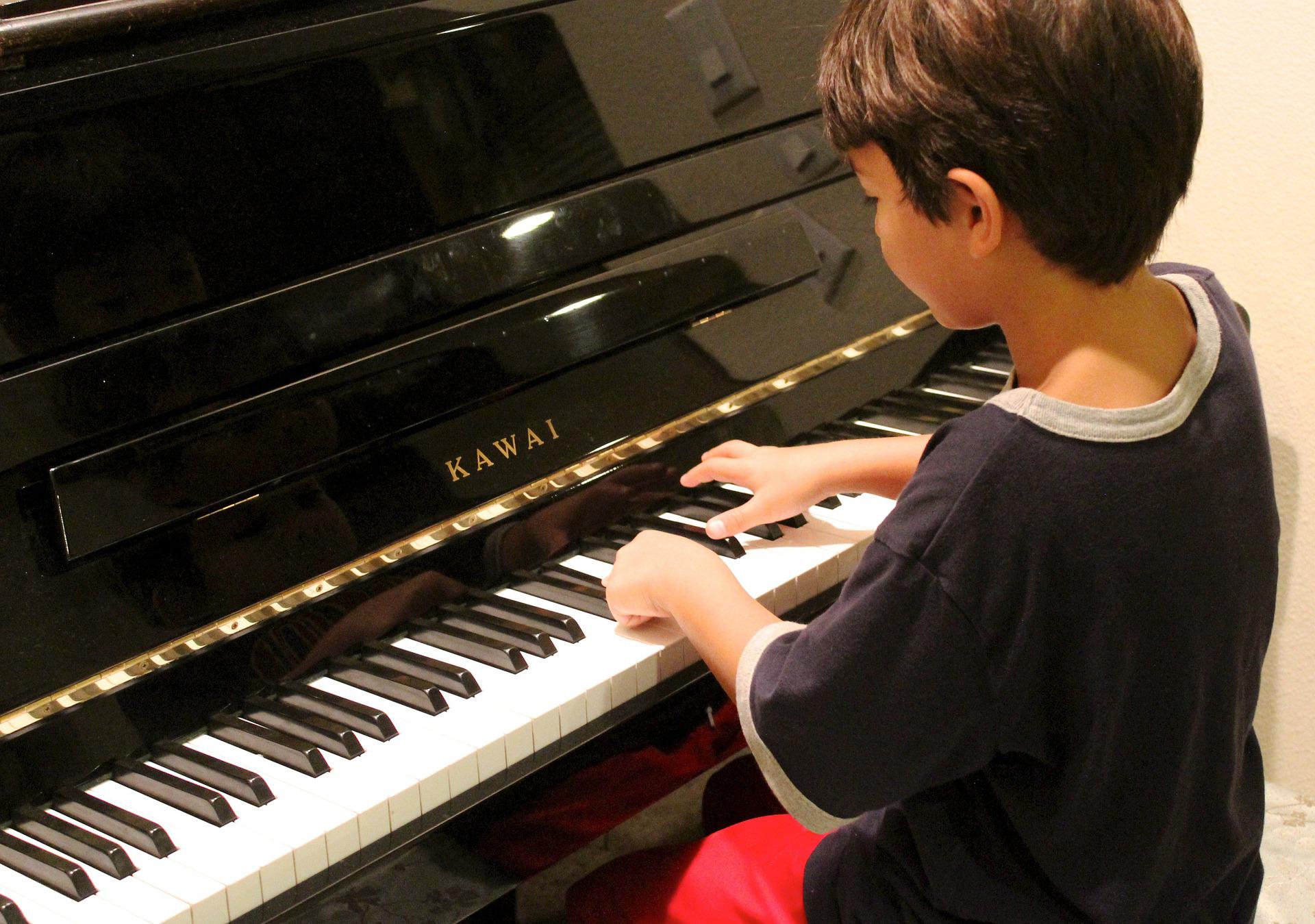Having avoided the rigours of an undergraduate dissertation, exchanging that unit for reconstructing early sixteenth century tenor parts, I had never written anything longer than about 5,000 words until embarking on a part-time MSc at the University of Portsmouth. Identifying a topic intriguing enough to sustain my own interest — it is optimistic to presume that all 16,000+ words would interest a reader — was the challenge of the dissertation element of the course, which I undertook in the academic year 2018–19.

The basic premise of my investigations was my inkling that if instrumental and vocal teachers were treated well by their employers (or hirers — more on that later) then they would be more committed to the organisation, more satisfied with their job and therefore better at it. So far, so logical. Of course, there are several caveats I have not given here, and, as we will see, some are crucial.
Most of the literature examining the working lives of vocal/instrumental teachers uses the title ‘peripatetic’; this word and ‘visiting’ are often applied in schools, too. I would have liked to have included a question in my survey asking teachers what they preferred to be called, and what they actually were called in reality. A straw poll suggested that school websites refer to ‘VMTs’ but in real life conversations the same people are often ‘peris’. Anecdotal evidence points to a separation from the rest of the staff body; in some schools this happens because of the layout of the school, but perhaps for ‘peris’ it happens because of the different mode of employment, I inferred. After all, the fact the ‘gig’ economy is named after a musician’s mode of working indicates that we got to zero-hours contracts and freelancing as the norm before most sectors.
My study was an exploratory one; that is, I posed questions to be investigated — not necessarily answered — rather than positing and testing hypotheses. The overarching research question is ‘How far do vocal and instrumental teachers see themselves as an integral part of their school’s workforce?’. This is split into three sub-questions, addressing the teachers’ commitment to the school as an organisation, their job satisfaction, and how these two measures combine with how they are employed and the stage they are at in their career.
Job satisfaction, organisational commitment and career stage can seem nebulous concepts to the generalist reader, but there are internally consistent measures for the first two, and a variety of successfully used models for the latter. It is worth emphasising at this point that social science does not attempt to prove facts in the same terms as natural science, but rather to describe reality as perceived or constructed by the particular social beings under examination. So although the satisfaction and commitment scales have been tested statistically, the inferences taken from any set of results will depend on a wide range of factors.
Job satisfaction — which in research in the hospitality sector is associated with effectiveness in the role — is measured out of 50 according to a scale developed by Scott McDonald and Peter Macintyre. Organisational commitment, the scale for which is by John Meyer and Natalie Allen, is split into three: affective (psychological/emotional); normative (feeling an obligation to remain); and continuance (seeing costs to self in leaving, perceiving lack of alternatives). The first two are broadly positive, and the second is broadly negative.
Having read this far, perhaps you are seeing the same possible outcome as I was: if job satisfaction is associated with effectiveness, and positive organisational commitment is associated with job satisfaction, then there may be positive actions schools could take to simultaneously improve the status of vocal/instrumental teachers and the outcomes for students. In the social sciences, as I indicated earlier, nothing is proven, and every ‘suggestion’ is littered with soul-destroying caveats, but this is the pattern which I investigated.
259 teachers were kind enough to answer my survey, which included the standardised job satisfaction and organisational commitment surveys, as well as some contextual data. In terms of age and location, the respondents were broadly representative of the national averages in England; Welsh and Scottish teachers were invited to take the survey, but almost none did.
A few further figures about this sample of 259:
- most (84%) had spent more than half of their working life so far as a vocal/instrumental teacher
- there was a strong positive correlation between job satisfaction and affective organisational commitment (the psychological/emotional form of commitment)
- job satisfaction increased with age (this had been suggested in some of the literature)
- being employed or self-employed did not affect either job satisfaction or organisational commitment
- however, job satisfaction was significantly lower for staff working for hubs
- respondents working in London had slightly lower job satisfaction and less positive organisational commitment than those in the surrounding regions
This quantative data was backed up by free text responses, which 75 of the 259 respondents chose to provide. The key theme in these was very clear: interpersonal relationships are key. Very many responses were based on whether the Head of Department spent meaningful time with the vocal/instrumental teachers, and on the culture of the school in general. Negative feelings were sometimes directed at the Head of Department; in other responses, the Head of Department’s efforts were very much appreciated, but seen in a context of music not being appreciated by senior leaders. The positive stories also feature interpersonal relationships, particularly — though not exclusively — focussing on the privilege of teaching students one-to-one for a number of years. Indeed, there may be an association between teaching Year 13s and higher job satisfaction.
In short, I discovered that, on average, vocal/instrumental teachers have average job satisfaction and average organisational commitment. With hindsight, this should perhaps not have been a surprise. However, there are some issues in the detail.
Most classroom teachers make a positive decision to go into the classroom, as demonstrated by their having to take a year’s post-graduate qualification to be eligible to do so in most cases. Vocal/instrumental teachers, on the other hand, often begin teaching as a sideline to a performing career. Even now, not all of the conservatoires have compulsory education modules on their standard undergraduate course, and yet most performing musicians earn at least some of their living from teaching. The figures are even worse for universities.
The idea of ‘career preview’ has been explored by previous studies, and there was a pan-European project between conservatoires to improve their provision. A further issue, though, is the career itself: how many schools are in a position to appoint a vocal/instrumental teacher to a leadership position? Some independents with larger departments have Heads of Woodwind/Brass, etc., but many schools, particularly in the state sector, would not be able to afford to have a Head of Department who did not teach classes. So in the preview of a career, what is the definition of seniority? It rarely means more money; where more responsibility comes, this may be with taking ensembles and higher grade pupils, but not for a higher hourly rate despite the different expertise required. And access to TLR or management points in schools is generally restricted to classroom practitioners.
It is in the nature of an exploratory study such as this one that I have discovered many more questions than I initially posed. The most important, to my mind, are these:
- How can schools better recognise the contribution of freelance and hub staff to their school cultures?
- Are the figures showing hub staff to be significantly less satisfied in their jobs than freelance and school-employed colleagues replicable? If so, what lies behind this and how can hubs improve this situation?
- Given that the majority of vocal/instrumental teachers are conservatoire graduates, and that the majority of conservatoire graduates who now earn their living from music are engaged in teaching, why is music education not compulsory at all colleges at undergraduate level?

An interesting detail which I happened upon by accident is that those who answered the survey after following a link from one of the various Facebook music teachers’ fora were significantly more negative than those who arrived at the survey in other ways (for example, via Twitter, direct email, or from their Head of Department). In fact, this was the group with the most statistical significance to their job satisfaction! I imagine that a statistician somewhere who enjoys exploring methodology will be keen to investigate the phenomenon of ‘Facebook bias’.
I would be delighted to discuss my findings further with readers who are interested. The full dissertation is couched in caveats, but also more detail about the background and detail of the study and I would be happy to share it.

